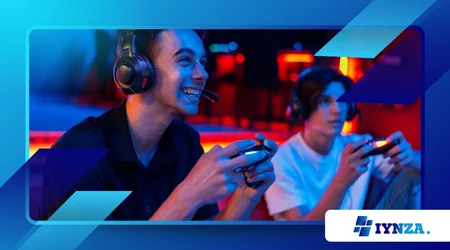How to Stay Mentally Strong in High-Pressure Esports Matches

Esports demand more than just fast reflexes and technical skill. Mental strength is what separates the good from the great in high-pressure matches.
Anúncios
Whether competing in a championship final or grinding through ranked games, maintaining focus, managing stress, and handling setbacks are crucial for peak performance.
Professional players and teams invest heavily in mental training to ensure they can stay calm and make smart decisions under pressure. But how can you develop the same level of mental resilience to perform at your best in intense matches?
In this guide, we’ll explore strategies to strengthen your mindset, control emotions, and optimize your mental game to dominate in high-pressure esports scenarios.
The Mental Challenges of High-Pressure Esports Matches
Competitive gaming pushes players to their limits.
Unlike casual gaming, where mistakes have minimal consequences, esports matches—especially at higher levels—come with intense stakes, pressure from teammates, and expectations from fans and organizations.
Many players experience:
- Performance anxiety – The fear of making mistakes can lead to hesitation and poor decision-making.
- Emotional volatility – Frustration, anger, and tilt can spiral out of control, affecting gameplay.
- Loss of focus – Long matches require sustained attention, and distractions can lead to crucial errors.
- Burnout and fatigue – Continuous competition without proper mental recovery leads to exhaustion.
Developing a strong mental framework helps players overcome these challenges and stay in control, no matter how intense the match gets.
Learn more: The Latest in Gaming Tech: From Consoles to Cloud Gaming
1. Building Mental Resilience for Esports Success
Resilience is the ability to bounce back from setbacks and stay composed under pressure. In esports, this means handling losing streaks, bad teammates, and tough competition without losing confidence.
Embracing a Growth Mindset
Top esports athletes don’t see losses as failures; they see them as learning opportunities.
By shifting your mindset to focus on improvement rather than immediate success, you can turn setbacks into valuable experiences that refine your gameplay.
Developing Emotional Regulation
Being aware of your emotions and controlling how you react is critical. Frustration and tilt can cloud judgment, leading to impulsive plays.
Techniques such as deep breathing, mindfulness, and positive self-talk can help players remain composed and make smarter decisions.
Handling High-Stakes Moments
Pressure peaks in clutch situations, such as the final round of a tournament match.
The key is to trust your training, avoid overthinking, and focus on one decision at a time rather than the outcome. Many pros use visualization techniques before matches to mentally rehearse high-pressure moments.
2. Concentration and Focus: The Key to Winning Under Pressure
One of the biggest struggles in esports is maintaining consistent focus throughout long matches or intense tournament series. A split-second lapse in attention can mean the difference between victory and defeat.
Eliminating Distractions
Competitive play demands full concentration. Set up an optimized gaming environment by:
- Muting notifications on your phone and PC.
- Creating a clutter-free desk setup.
- Using noise-canceling headphones or white noise to block out distractions.
Training for Longer Attention Spans
Many players start strong but lose focus as matches drag on. To improve:
- Practice longer gaming sessions with structured breaks to simulate tournament conditions.
- Use focus-training exercises, such as meditation or brain-training apps, to enhance cognitive endurance.
- Develop rituals before and during matches (such as breathing exercises or stretching) to reset focus between rounds.
Managing Mid-Match Nerves
Feeling nervous in a high-stakes match is normal. The key is to channel nervous energy into sharper gameplay rather than panic.
Progressive muscle relaxation and controlled breathing techniques are used by many professional players to keep their composure.
3. The Role of Pre-Match and Post-Match Routines
Just like physical athletes, esports players benefit from structured routines before and after matches. These routines help prepare the mind for peak performance and facilitate recovery after high-pressure games.
Pre-Match Preparation
A solid pre-match routine ensures that you enter games mentally sharp and focused. This might include:
- Reviewing strategies and past gameplay footage.
- Doing warm-up exercises, such as aim trainers or mechanics drills.
- Practicing breathing techniques to calm nerves and center focus.
Post-Match Reflection
After a match—win or lose—analyzing what happened is essential for growth. Instead of dwelling on mistakes emotionally, review key moments objectively to identify what went well and what can be improved.
Many pros use match recordings to break down their decision-making and eliminate patterns of bad habits.
4. Managing Stress and Preventing Burnout
Esports demands long hours of intense concentration, which can lead to mental fatigue and burnout if not managed properly.
Recognizing the warning signs—such as frustration, exhaustion, and lack of motivation—is crucial for maintaining longevity in competitive gaming.
Balancing Practice and Rest
Many players believe that grinding endlessly will make them better, but overtraining often leads to diminishing returns. Taking structured breaks, getting quality sleep, and engaging in physical activity can significantly improve performance over time.
Building a Support System
Esports can feel isolating, especially for solo players. Having a supportive network of friends, teammates, or even a mental coach can help players process setbacks and stay motivated. Many professional teams employ sports psychologists to ensure their players maintain a strong mental state.
Diet and Hydration for Cognitive Performance
What you eat and drink affects how your brain functions. Many esports pros avoid excessive sugar and caffeine, opting instead for hydration, balanced meals, and brain-boosting foods like nuts, fish, and dark chocolate to maintain focus and reaction speed.
5. Techniques Used by Pro Players to Stay Mentally Strong
To maintain peak performance, professional esports players rely on specific mental techniques. Here’s a comparison of the most effective methods:
| Technique | Purpose | Example in Esports |
|---|---|---|
| Visualization | Mentally rehearsing plays before a match | Players imagining clutch moments before a game |
| Breathing Techniques | Calming nerves and staying focused | Slow breathing before crucial rounds |
| Pre-Game Rituals | Creating consistency in performance | Warm-up drills, music playlists, stretching |
| Self-Talk | Boosting confidence and focus | Positive reinforcement after mistakes |
| Mindfulness Training | Staying present and reducing stress | Meditation sessions to clear the mind |
These techniques are scientifically backed and used across various professional sports to improve focus, resilience, and emotional control.
The Mindset of a Champion
Mental strength is often the deciding factor in high-pressure esports matches. The ability to stay calm, adapt under stress, and recover from setbacks separates top-tier players from the rest.
By training your mind as rigorously as your mechanics, you can develop a mental edge that allows you to perform under pressure, maintain focus, and prevent burnout.
Esports is a game of skill—but it’s also a game of the mind. The players who master both will rise above the competition.
Frequently Asked Questions (FAQ)
1. How can I stop getting nervous during important matches?
Use breathing techniques, visualization, and mental focus exercises before and during the match to stay composed.
2. What should I do if I get frustrated after losing?
Take a short break, analyze the match objectively, and use losses as learning experiences rather than emotional setbacks.
3. How do pro players avoid tilt?
They practice emotional regulation, focus on what they can control, and use post-match analysis rather than dwelling on mistakes.
4. Can physical exercise help improve esports performance?
Yes. Regular physical activity improves focus, reaction time, and mental endurance, which are crucial for competitive gaming.
5. What’s the best way to improve mental stamina for long gaming sessions?
Balanced rest, hydration, structured training sessions, and mindfulness exercises all help sustain focus over extended periods.
